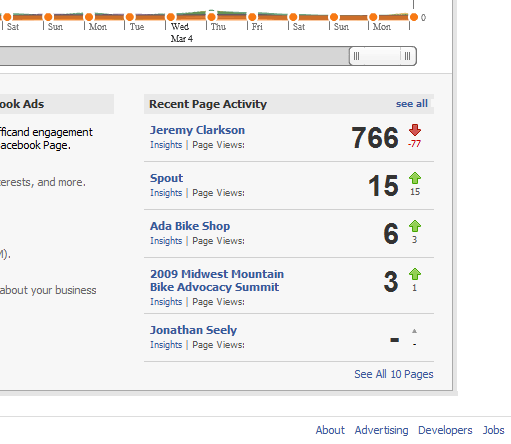Many have raised an eyebrow over the seemingly-untimely introduction of Dell's new micro-thin flagship laptop, the Adamo. Thinner than a Macbook Air and milled from a single piece of billet aluminum, the Adamo represents a big diversion from the bland plastic PC clones that Dell has been steadily churning out for most of their history. In a recession economy, it may seem foolish to unveil what is essentially a $2,000 novelty computer. It is not nearly as powerful as most laptops costing half, and seems largely an exercise in design rather than actual function.
In a recession economy, it may seem foolish to unveil what is essentially a $2,000 novelty computer. It is not nearly as powerful as most laptops costing half, and seems largely an exercise in design rather than actual function.
I would contend that Dell isn't trying to, nor is expecting to sell many of these computers. What they are trying to sell is an image or a brand.
As I mentioned before, Dell has had a long past of cranking out PC clones that don't stand out in the crowd. They are nicely featured and represent "a good value" in most cases, but they don't exactly get anyone's heart racing. Enter, Adamo. The Adamo is more a selling of ideas and image than it is an actual product.
Look at the marketing. The words used most repetitively through their entire campaign are "craftsmanship" and "style". Dell goes through great lengths to emphasize the quality of materials and construction. Check out the introduction video below if you don't believe me:
What Dell is doing is creating a major shift in their image. Apple has long dominated the market in terms of perceived quality. Their machines are solid, elegant and sculpted. They don't creak and crack when they are handled, and their lines are fluid enough to find a home in a modern art museum. Apple has long made a market for their product based mostly on image, and Dell wants a piece of that (Apple) pie (pun intended).
Dell is not introducing the Adamo to sell Adamos. To do so would be a rather foolish expectation at a time when high end computer sales are plummeting, and the PC is earning a bit of a bad reputation in the wake of the rise of Apple's OS and the rampant Vista bashing.
What I firmly believe Dell is trying to do is instead sell more low-end product through a shift in their branding. If they can create a change in the consumer's perception of their product by introducing something high-end, Dell knows that buzz generated by the Adamo will attract consumer attention to the rest of their product line.
A lot of people wander into Chrysler dealerships to look at the new Dodge Viper, but how many actually leave with one? Consumers will be reassured that Dell is in fact a competent and leading-edge manufacturer, which will trickle down into consumer confidence in their lower-end offerings as well.
So maybe a $2,000 laptop isn't such a stupid idea after-all. What do you think?
March 20, 2009
why a $2,000 dell makes sense
Posted by Seely at 11:34 AM 2 comments
Labels: adamo, communication, dell, economy, recession
March 12, 2009
fanpage glitch confirms facebook does keep all your stuff forever
I logged in to Facebook today to update a few fan pages I administer. Right away, I noticed my list of fan pages seemed a bit longer than I remembered it being yesterday.

Interesting, considering I had deleted the fan page bearing my name months earlier. Also, notice that I allegedly have 10 active fan pages. I had 6 yesterday. In fact, I am not sure I have had 10 pages total since creating my first Facebook fan page. This clearly shows that Facebook does in fact keep information even after it is removed by the author of the content. Interesting given the fact that Facebook’s retention of information was a major focus in the ruckus surrounding the controversial TOS changes.
The reappearance of deleted content doesn’t particularly concern me—I don’t really have anything of major concern. It does make me wonder, however, about users who do have some deleted skeletons in their closet? What are the implications for them?




